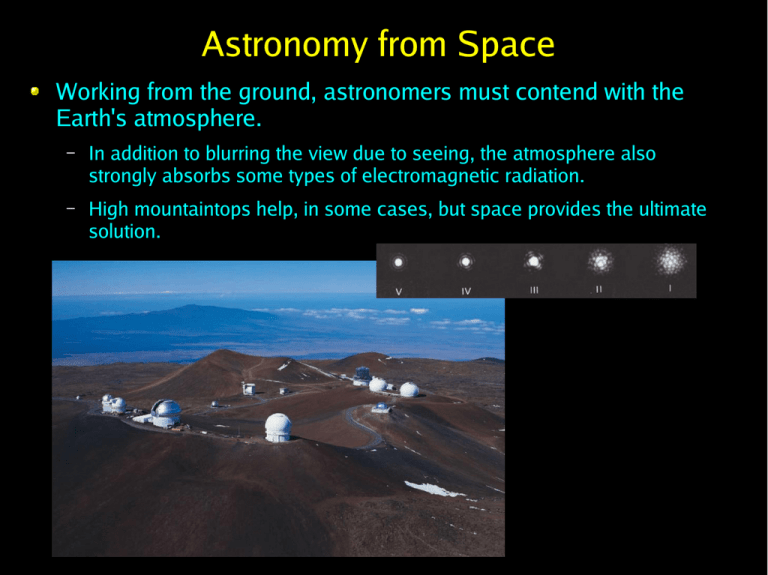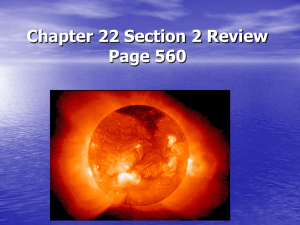Astronomy from Space Earth's atmosphere.
advertisement

Astronomy from Space Working from the ground, astronomers must contend with the Earth's atmosphere. – In addition to blurring the view due to seeing, the atmosphere also strongly absorbs some types of electromagnetic radiation. – High mountaintops help, in some cases, but space provides the ultimate solution. Astronomy from Space Working from the ground, astronomers must contend with the Earth's atmosphere. – In addition to blurring the view due to seeing, the atmosphere also strongly absorbs some types of electromagnetic radiation. – High mountaintops help, in some cases, but space provides the ultimate solution. To avoid the worst of the atmosphere's absorption, infrared observations, for example, must be conducted from highaltitude aircraft or from space The “Great Observatories” For the last two decades NASA and its international partners have developed powerful space observatories that span the electromagnetic spectrum. Hubble Space Telescope (visible) Spitzer (infrared) Space Telescope Compton Gamma-ray Observatory Chandra X-ray Observatory The Spitzer Space Telecope, launched in 2003, provides an infrared view of the universe. Liquid Helium cools the telescope to less than 10 degrees above absolute zero to make it sensitive to the faint infrared glow of astronomical objects.



